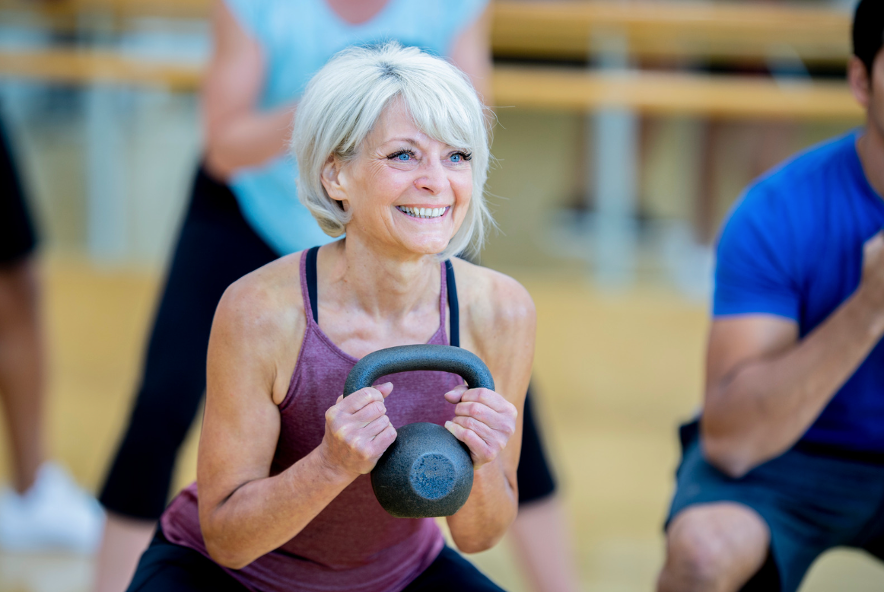Five Underrated Benefits of Exercise
Exercise is a powerhouse of benefits, celebrated for its well-known advantages like weight management, improved cardiovascular health, and increased muscle strength. Yet, as seasoned experts in the field, we recognise that exercise has a treasure trove of additional perks that often remain hidden in plain sight…
In the spirit of shining a spotlight on these underrated benefits, we are thrilled to unveil our top five hidden gems of exercise. It's time to give these unsung heroes the recognition they truly deserve!
Nurturing Mental Wellbeing
It is likely that regular exercise-goers know this one well, but for those who haven't experienced it yet, it may still be a hidden treasure. Working closely with clients, we have witnessed firsthand the remarkable positive effects of exercise on mental well-being. In the short-term, engaging in physical activity releases endorphins, neurotransmitters that create feelings of happiness and reduce stress levels. These post-workout endorphin rushes are often referred to as the "runner's high" (Penedo & Dahn, 2005). But the benefits go beyond the immediate bliss. Over time, regular exercise has been proven to alleviate symptoms of anxiety and depression, improve sleep quality, and boost self-esteem (Craft & Perna, 2004; Ströhle, 2009).
Increasing Energy Levels!
We have a feeling that there are not many people who would turn down an offer of more energy. Well, here it is - engaging in physical activity can actually boost your energy levels! It may sound counterintuitive, but it’s true. By improving blood flow and oxygen delivery throughout the body, exercise enhances your stamina and endurance (Kruk et al., 2019). Exercise also stimulates the release of dopamine and serotonin, additional neurotransmitters that contribute to feelings of vitality and alertness (Meeusen et al., 2006). So, instead of reaching for another cup of coffee or relying on sugary snacks for an energy fix, consider lacing up your sneakers and making the most of this benefit.
Enhancing Immune Resilience
We all want a strong and resilient immune system, especially at this time of the year! The good news is that exercise plays a vital role in boosting our immune function and keeping us healthy. Regular physical activity has a remarkable impact on our immune system. It enhances the circulation of immune cells, making them more efficient at detecting and fighting off infections and diseases (Simpson et al., 2020). By engaging in exercise, you're giving your immune system a much-needed boost, offering additional support to ward off common illnesses.
Fuelling Creativity and Productivity
In the return-to-work space, our clients often face challenges when it comes to focusing and being creative. Often, they are surprised by the positive impact that exercise can have in this realm. By engaging in exercise, you increase blood flow to the brain, delivering a valuable supply of oxygen and essential nutrients (Chang et al., 2012). Research has also shown that exercise stimulates the growth of new neurons, providing a solid foundation for enhanced memory, sharper focus, and unleashed creativity (Van Praag et al., 2005). So, the next time you find yourself hitting a creative wall at work, consider taking a break to indulge in a quick workout or a brisk walk. You will likely return with a fresh perspective!
Building Routine
Exercise provides a stamp on the calendar, encouraging a healthy routine for our clients and anyone seeking structure in their lives. By scheduling regular exercise, you can regain control over your day and establish a sense of purpose. It becomes a non-negotiable appointment, promoting consistency and accountability. As you commit to exercise, other important activities seamlessly fit into your routine.
The positive ripple effects extend beyond physical health, empowering you to regain structure, purpose, and stability in your life.
References: Chang, Y. K., Labban, J. D., Gapin, J. I., & Etnier, J. L. (2012). The effects of acute exercise on cognitive performance: a meta-analysis. Brain Research, 1453, 87-101.
Craft, L. L., & Perna, F. M. (2004). The benefits of exercise for the clinically depressed. Primary Care Companion to the Journal of Clinical Psychiatry, 6(3), 104-111.
Kruk, J., Czarny, W., Stasiołek, A., & Kowalski, I. M. (2019). The influence of physical activity on the energy level of sedentary people. Journal of Physical Education and Sport, 19(6), 2432-2437.
Meeusen, R., Piacentini, M. F., & De Meirleir, K. (2006). Brain microdialysis in exercise research. Sports Medicine, 36(12), 1029-1039.
Penedo, F. J., & Dahn, J. R. (2005). Exercise and well-being: A review of mental and physical health benefits associated with physical activity. Current Opinion in Psychiatry, 18(2), 189-193.
Simpson, R. J., Campbell, J. P., Gleeson, M., Krüger, K., Nieman, D. C., Pyne, D. B., ... & Walsh, N. P. (2020). Can exercise affect immune function to increase susceptibility to infection? Exercise Immunology Review, 26, 8-22.
Ströhle, A. (2009). Physical activity, exercise, depression and anxiety disorders. Journal of Neural Transmission, 116(6), 777-784.Author: Tessa NielsenClinical Exercise Physiologist and Content Creator at Specialised Health
Let’s connect, find us:
#exercisephysiology #exerciserehab #rehabilitation #lifeinsurance #incomeprotection #ctp #workcover #mobile #mobileexercisephysiology #fatigue #mentalhealth #cancer #musculoskeletal #injury #pain #physio #physiotherapy #Sydney #Brisbane #Melbourne #Adelaide #Auckland #Waikato #BayofPlenty #Wellington #Otago #Christchurch

